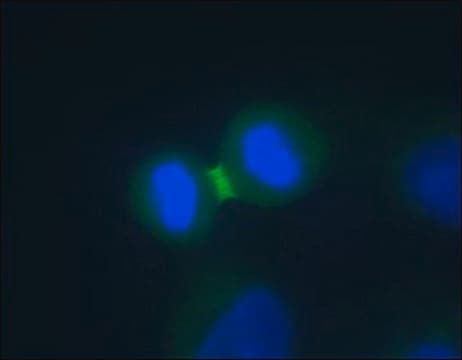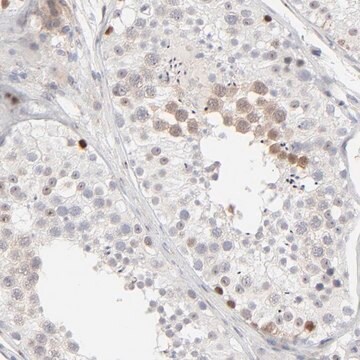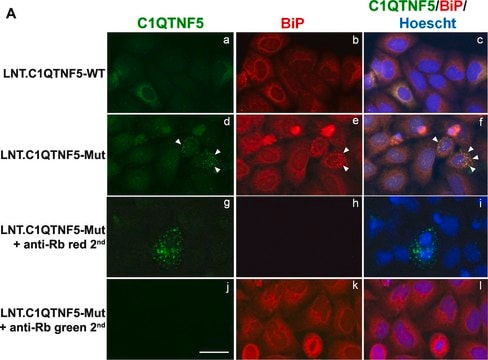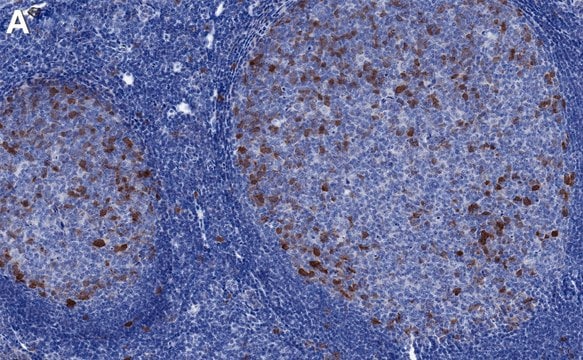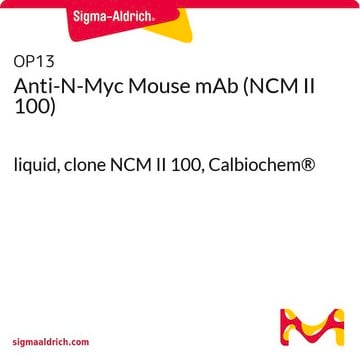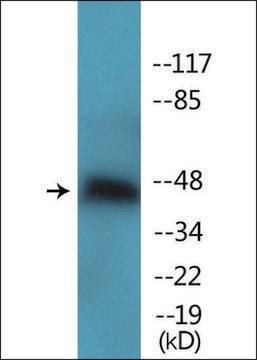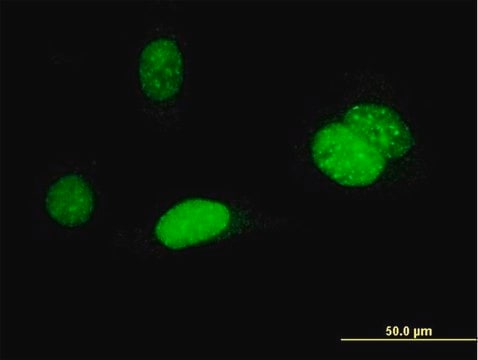A1231
Monoclonal Anti-Aurora-A Kinase
clone 35C1, purified from hybridoma cell culture
Sinónimos:
Monoclonal Anti-Aurora-A Kinase antibody produced in mouse, Anti-ARK-1, Anti-AURORA2, Anti-Aurora-related kinase 1, Anti-STK6, Anti-Serine/threonine protein kinase 15, AntiSTK15 (Serine/threonine protein kinase 15), BTAK
About This Item
ICC
IP
WB
immunoprecipitation (IP): suitable
indirect ELISA: suitable
western blot: 0.25-0.5 μg/mL using HeLa total cell extract
Productos recomendados
biological source
mouse
Quality Level
recombinant
expressed in mouse cell line
conjugate
unconjugated
antibody form
purified immunoglobulin
antibody product type
primary antibodies
clone
35C1, monoclonal
form
PBS solution
mol wt
antigen ~46 kDa
species reactivity
human, mouse
concentration
~2 mg/mL
technique(s)
immunocytochemistry: suitable
immunoprecipitation (IP): suitable
indirect ELISA: suitable
western blot: 0.25-0.5 μg/mL using HeLa total cell extract
isotype
IgG2b
UniProt accession no.
shipped in
dry ice
storage temp.
−20°C
target post-translational modification
unmodified
Gene Information
human ... AURKA(6790) , AURKA(6790)
mouse ... Aurka(20878) , Aurka(20878)
¿Está buscando productos similares? Visita Guía de comparación de productos
General description
Specificity
Immunogen
Application
Biochem/physiol Actions
Physical form
Disclaimer
¿No encuentra el producto adecuado?
Pruebe nuestro Herramienta de selección de productos.
related product
Storage Class
10 - Combustible liquids
wgk_germany
WGK 3
flash_point_f
Not applicable
flash_point_c
Not applicable
ppe
Eyeshields, Gloves, multi-purpose combination respirator cartridge (US)
Elija entre una de las versiones más recientes:
Certificados de análisis (COA)
¿No ve la versión correcta?
Si necesita una versión concreta, puede buscar un certificado específico por el número de lote.
¿Ya tiene este producto?
Encuentre la documentación para los productos que ha comprado recientemente en la Biblioteca de documentos.
Nuestro equipo de científicos tiene experiencia en todas las áreas de investigación: Ciencias de la vida, Ciencia de los materiales, Síntesis química, Cromatografía, Analítica y muchas otras.
Póngase en contacto con el Servicio técnico